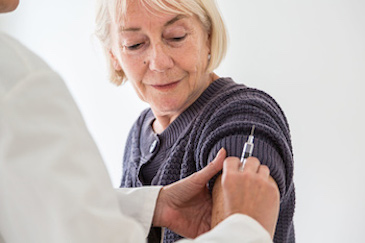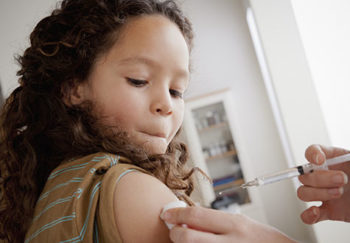
When I think of shingles, I think of chickenpox, and also that it’s a painful disease that only older people get. But I’ve also known people, including myself, who have gotten mild and severe cases of the disease in their 30s and 40s. I asked primary care doctor Seki Balogun, MBBS, about shingles: who’s at risk for it, how to prevent it and how to manage it if you get it.
Shingles FAQs
I think of shingles being something that older people get. Is that true?
People over age 60 are at greatest risk, but those who have chronic diseases or certain kinds of immunological conditions that weaken their immune systems can get it, too. We rarely see patients younger than 40 with this disease, because you have to have had chickenpox, and the chickenpox vaccine has prevented many people younger than 40 from getting it.
Is it contagious?
It’s a virus — the same virus that causes chickenpox — but you can only get shingles if you’ve had chickenpox. After you recover from chickenpox, the virus stays in your body and can become active again later as shingles. While chickenpox is contagious, shingles is not. The virus stays dormant until your immune response is weakened, either by stress, age, or a medical condition.
Can stress make you vulnerable to shingles?
Generally, stress is a known factor that decreases your immune system. It’s not uncommon for people to get cold sores when they’re stressed, and cold sores are caused by a virus that’s in the same family as shingles. But the people most vulnerable are people ages 60 and older.
How do you know if you have shingles?
It’s a painful, sometimes blistery rash that’s usually only on one side of the body. It’s what we call a dermatonal rash, meaning it’s in an area that is supplied by a specific nerve. Usually you’ll see the rash on one side of the back, but it can appear on the face, too.
For some people it’s painful, but for others it’s just irritating. It can also cause nerve pain after the rash has cleared up, and that usually happens in cases when someone’s waited too long to treat it. If you have a rash on one side of your body, contact your doctor. The earlier you treat shingles, the less severe it’s likely to be.
Have You Gotten the Shingles Vaccine?
Make an appointment with a UVA primary care provider in your community.
How do you treat shingles?
Antivirals work, but they work best within 48 hours of the rash appearing. If you wait longer, the rash can be more widespread and painful and harder to treat. You’re more likely to get a recurrence of shingles if you don’t treat it right away. Acting quickly can help you recover faster, and it can help with the pain after. You really want to start the antivirals as fast as you can!
What about the shingles vaccine?
We recommend the vaccine for everyone over age 60. It’s really effective. A lot of people have a fear of vaccines or think that the vaccine can cause shingles, but you can’t get shingles from the vaccine.
Shingles can be a debilitating disease, especially in older people, and it can recur in the same place or in different parts of your body. The vaccine is a safe, effective way to avoid getting shingles.


Not likely to get shingles before 40 and getting the vaccine after 60 leaves those of us in the 50 range wondering if we should get the vaccine earlier than 60. I ask because I’ve has chicken pox as a child and also get fever blisters when under stress. Would it be advantageous to get the vaccine earlier?